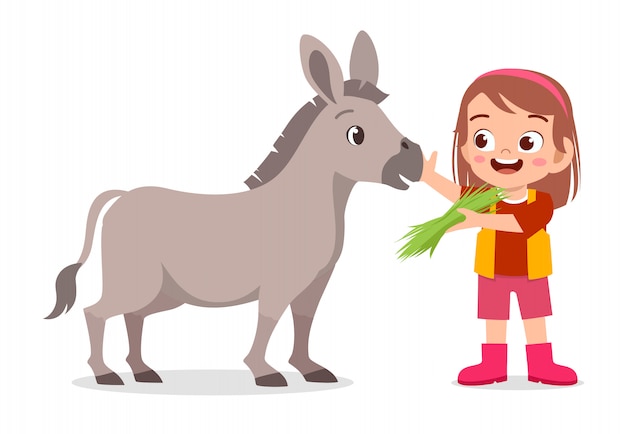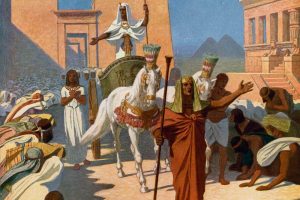The Little Donkey Called Bil’am


Called Bil’am


Solution for The Continuing Coronavirus Times
During these continuing challenging Coronavirus times, we invite you to easily learn Hebrew from home and experience the exciting group dynamics with people from all over the world.
 Sign up for a FREE Demo session HERE!
Sign up for a FREE Demo session HERE!
https://forms.monday.com/forms/2b77e7d8a59bdbf1af212d5cf2875507
For any other requests, please just respond with those to this post.

—————————————————————————–
Shalom,
This Shabbat in Israel, we will read Torah portion “Balak“, while elsewhere, outside of Israel, the reading will include two Torah portions “Hukat” and “Balak“.
Thus, the readings in Israel and outside of Israel will coincide next Shabbat with the Torah portion Pinhas.
There are two talking animals mentioned in the Torah:
One, mentioned in our Torah portion, is the female donkey on which Bil’am used to ride.
Here is the dialogue between the donkey and Bil’am :
וַיִּפְתַּח יְהוָה, אֶת-פִּי הָאָתוֹן; וַתֹּאמֶר לְבִלְעָם, מֶה-עָשִׂיתִי לְךָ, כִּי הִכִּיתַנִי, זֶה שָׁלֹשׁ רְגָלִים
וַיֹּאמֶר בִּלְעָם לָאָתוֹן, כִּי הִתְעַלַּלְתְּ בִּי; לוּ יֶשׁ-חֶרֶב בְּיָדִי, כִּי עַתָּה הֲרַגְתִּיךְ
וַתֹּאמֶר הָאָתוֹן אֶל-בִּלְעָם, הֲלוֹא אָנֹכִי אֲתֹנְךָ אֲשֶׁר-רָכַבְתָּ עָלַי מֵעוֹדְךָ עַד-הַיּוֹם הַזֶּה–הַהַסְכֵּן הִסְכַּנְתִּי, לַעֲשׂוֹת לְךָ כֹּה;
God opened the mouth of the donkey, and it said to Balaam, “What have I done to you that you have struck me these three times?”
Balaam said to the donkey, “For you have humiliated me; if I had a sword in my hand, I would kill you right now.”
The donkey said to Balaam, “Am I not your donkey on which you have ridden since you first started until now? Have I been accustomed to do this to you?” (Numbers 22, 28-30)

Bil’am is considered to be a vicious person and people usually do not name their children by this name, but sometimes they may name so their pets or animals.
Now listen to a cute song by Nathan Alterman and Moshe Vilensky written in 1947.
The song tells how a big family from Yemen was making a long way of coming to Israel.
It lists the parents and all the children by their names, as well as the little donkey called Bil’am.
Here is the link to the song:
https://www.youtube.com/watch?v=_1fiAnYaeXE
And here are the lyrics of the beginning of the song:

This is a song written a long time ago…
As part of their studies with Ulpan-Or, our students learn a variety of modern up-to-date Israeli songs in our courses.

The other talking animal is, of course, the snake, mentioned in Genesis:
וְהַנָּחָשׁ, הָיָה עָרוּם, מִכֹּל חַיַּת הַשָּׂדֶה, אֲשֶׁר עָשָׂה יְהוָה אֱלֹהִים; וַיֹּאמֶר, אֶל-הָאִשָּׁה, אַף כִּי-אָמַר אֱלֹהִים, לֹא תֹאכְלוּ מִכֹּל עֵץ הַגָּן
וַתֹּאמֶר הָאִשָּׁה, אֶל-הַנָּחָשׁ: מִפְּרִי עֵץ-הַגָּן, נֹאכֵל
וּמִפְּרִי הָעֵץ, אֲשֶׁר בְּתוֹךְ-הַגָּן–אָמַר אֱלֹהִים לֹא תֹאכְלוּ מִמֶּנּוּ, וְלֹא תִגְּעוּ בּוֹ: פֶּן-תְּמֻתוּן
וַיֹּאמֶר הַנָּחָשׁ, אֶל-הָאִשָּׁה: לֹא-מוֹת, תְּמֻתוּן
כִּי, יֹדֵעַ אֱלֹהִים, כִּי בְּיוֹם אֲכָלְכֶם מִמֶּנּוּ, וְנִפְקְחוּ עֵינֵיכֶם; וִהְיִיתֶם,
כֵּאלֹהִים, יֹדְעֵי, טוֹב וָרָע
Now the snake was cunning, more than all the beasts of the field that the Lord God had made, and it said to the woman, “Did God indeed say, ‘You shall not eat of any of the trees of the garden?’”
The woman said to the snake, “Of the fruit of the trees of the garden we may eat. But of the fruit of the tree that is in the midst of the garden, God said, ‘You shall not eat of it, and you shall not touch it, lest you die.’”
The snake said to the woman, “You will surely not die. For God knows that on the day that you eat thereof, your eyes will be opened, and you will be like angels, knowing good and evil.” (Genesis 3, 1-5)

According to our sages’ classification, there are four parts of creation:
o DOMEM – דומם, the inanimate (rock, minerals, etc.),
o TZOMEAKH – צומח, the growing (plants, vegetables, etc.)
o KHAY – חי the living (animals), and
o ME’DABER – מדבר, the speaking (man)

Speech is unique, and is in fact the defining human faculty.
The words spoken by both the snake and the donkey are placed in their mouths by the creator for the purpose of highlighting the origin and effect of a particular style of speech.
Though words, by definition, can be spoken only by human beings, G-d let these two animals to speak in order to emphasize negatively the image of those who speak such words.
In case of Bil’am’s donkey, the Torah notes that God had to create a miracle to open its mouth for words to come out.
In reference to the primordial snake in the Garden of Eden, it seems that the snake’s power of speech was natural.
Thus the nature and effect of the snake’s speech is more commonplace in our experience then is the origin and effect of the donkey’s ability to speak.
The donkey and the snake represent the two extremes of the animal soul:
· Mind without a heart
· Heart without a mind.
Their arguments are just opposite one from another.
- The talking snake seduces Adam and Eve with the possibility of becoming a God and overcoming nature.
- The talking donkey challenges the idea that nature cannot be controlled as it is constant.
And what about the talking human beings?
We would like to conclude this post with a quote from Rabbi Kook:
אינני מדבר כי יש לי כוח לדבר; אני מדבר כי אין לי כוח לשתוק
“I don’t speak because I have the power to speak;
I speak because I don’t have the power to remain silent“…
The connection between human beings in its depth is instinctive, and the natural means for the connection is speech.
Therefore one has no choice but to speak.
Caring for others points out who we really are as human beings, reaching a point where our relationships are so deep that it is impossible not to say something…
Wishing you a wonderful Shabbat,
and speaking a lot of Hebrew!

Shabbat Shalom
Yoel & Orly
Many ask us for permission to redistribute our newsletters regarding Hebrew language learning and Hebrew insights.
By all means, please do feel free to forward this newsletter to anyone you wish!
Access the archive of our previous posts at:
https://www.ulpanor.com/category/blog/




